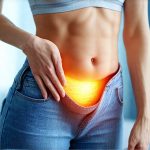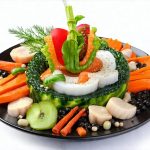Recovering from a urological infection – whether it’s a urinary tract infection (UTI), kidney infection, or another related ailment – can leave you feeling depleted and vulnerable. Beyond the initial symptoms like pain and discomfort, many individuals experience lingering weakness and fatigue that impact their overall well-being. This isn’t surprising; fighting off an infection demands significant energy from the body, and the urological system itself needs time to rebuild its natural defenses. Simply “getting over” the illness is often insufficient for a full recovery. A thoughtfully constructed diet plays a crucial role in replenishing lost nutrients, supporting immune function, and ultimately restoring strength to the urinary tract and surrounding areas. It’s about proactively nourishing your body back to health, not just waiting for symptoms to subside.
The connection between what we eat and our urological health is profound. A balanced diet provides the building blocks needed for tissue repair, strengthens the bladder muscles, and promotes healthy kidney function. Specific nutrients can also help prevent future infections by bolstering the immune system and creating a less hospitable environment for bacteria. This isn’t about restrictive dieting; it’s about making informed choices that prioritize healing and long-term wellness. Understanding how different foods impact your urological strength empowers you to take control of your recovery journey and feel confident in your body’s ability to thrive again.
Hydration & Electrolyte Balance
Adequate hydration is arguably the most important aspect of post-infection dietary support for the urological system. Infections, particularly those affecting the urinary tract, often lead to fluid loss through increased urination or fever-induced sweating. Dehydration can exacerbate symptoms, hinder healing, and even increase the risk of recurrent infections. Prioritizing fluids isn’t just about drinking water; it’s about choosing hydrating options that also replenish essential electrolytes lost during illness.
Beyond plain water, consider incorporating electrolyte-rich beverages like coconut water, diluted fruit juices (unsweetened), or herbal teas. Avoid sugary drinks and excessive caffeine, as these can irritate the bladder and potentially worsen symptoms. A good rule of thumb is to aim for pale yellow urine – a sign that you’re adequately hydrated. Listen to your body’s cues; thirst isn’t always an accurate indicator, especially after illness. Regular sipping throughout the day is more effective than chugging large amounts of water at once. If you’re looking for ways to further support kidney health, consider exploring diet tips tailored for kidney patients.
Electrolytes, such as sodium, potassium, and magnesium, are vital for nerve and muscle function, including those in the bladder. Diarrhea or vomiting accompanying infections can deplete these crucial minerals. Foods rich in electrolytes include bananas (potassium), leafy green vegetables (magnesium), and small amounts of sea salt (sodium). Maintaining electrolyte balance supports optimal bladder control and reduces fatigue associated with recovery.
Boosting Immunity Through Diet
A weakened immune system is often a contributing factor to urological infections, and rebuilding it is paramount for preventing recurrence. Dietary choices significantly influence immune function. Focus on incorporating foods rich in vitamins, minerals, and antioxidants – the key players in supporting your body’s natural defenses.
- Vitamin C: Found in citrus fruits, berries, peppers, and broccoli, vitamin C strengthens white blood cells and enhances their ability to fight off infection.
- Vitamin D: Often obtained through sunlight exposure, but also found in fatty fish and fortified foods, vitamin D plays a crucial role in immune regulation.
- Zinc: Present in meat, poultry, beans, and nuts, zinc is essential for the development and function of immune cells.
Probiotic-rich foods like yogurt (with live cultures), kefir, sauerkraut, and kimchi can also help restore gut health, which has a strong connection to immunity. A healthy gut microbiome supports a robust immune response. Consider limiting processed foods, sugar, and excessive alcohol consumption, as these can suppress immune function. To further explore the impact of specific diets on urological wellbeing, you might find information about vegan diets and urological health helpful.
Anti-Inflammatory Foods for Urological Healing
Inflammation is a natural part of the body’s response to infection, but chronic inflammation can hinder healing and contribute to discomfort. Incorporating anti-inflammatory foods into your diet can help soothe the urological system and promote recovery. These foods contain compounds that combat inflammation and support overall health.
Foods rich in omega-3 fatty acids, such as salmon, tuna, flaxseeds, and walnuts, are powerful anti-inflammatories. Berries, particularly blueberries and cranberries (though cranberry juice can be irritating for some), are packed with antioxidants that reduce inflammation. Turmeric, a spice containing curcumin, has potent anti-inflammatory properties; adding it to meals or consuming turmeric tea can be beneficial. For those interested in longer-term dietary adjustments, post-treatment diet plans for urological balance provide a more comprehensive approach.
Avoid pro-inflammatory foods like processed meats, sugary drinks, refined carbohydrates, and excessive amounts of red meat. These foods can exacerbate inflammation and slow down the healing process. A diet focused on whole, unprocessed foods is key to reducing inflammation and supporting urological health.
Gentle Digestion & Fiber Intake
The digestive system plays a surprisingly significant role in overall health, including urological well-being. Infections can disrupt gut flora and lead to digestive upset, which can further weaken the body. A diet that’s easy on the digestive system allows your body to focus its energy on healing the urinary tract.
Focus on easily digestible foods like cooked vegetables, lean protein sources (chicken, fish), and whole grains. Avoid overly spicy or fatty foods, as these can irritate the digestive system. Fiber is essential for maintaining healthy bowel movements, which prevents constipation and reduces pressure on the bladder. However, introduce fiber gradually to avoid bloating or discomfort. Understanding how your diet impacts both digestion and urological function is key; consider reading tips for balancing digestive and urological cycles.
- Gradually increase your intake of soluble fiber found in oats, applesauce, and bananas.
- Drink plenty of water to help move fiber through your digestive system.
- Consider probiotics to restore gut health and improve digestion.
Remember, these dietary tips are intended to support recovery and shouldn’t be considered a substitute for professional medical advice. Always consult with a healthcare provider or registered dietitian for personalized recommendations based on your specific condition and needs. If you’re looking for ways to manage discomfort after meals, explore urology diet tips to ease pressure after meals.





















